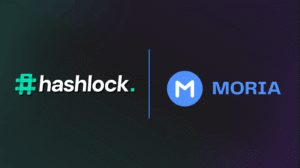The gaming industry has witnessed an enormous transformation over the years. The industry has grown significantly due to advancements in technology, new game releases, and the availability of mobile devices. Game developers are always seeking new ways to make their games unique, immersive, and engaging for players. Recently, blockchain technology has emerged as a viable solution for game developers to create new revenue streams. In this article, we will explore the role of blockchain in creating new revenue streams for game developers.
Blockchain Technology
Blockchain technology is a distributed ledger that maintains a continuously growing list of records, called blocks, linked and secured using cryptography. This technology has several benefits that make it suitable for game development. Firstly, it is transparent, meaning that all parties involved in a transaction can view the transaction history. Secondly, it is secure and tamper-proof, meaning that once a transaction is recorded on the blockchain, it cannot be altered. Thirdly, it is decentralized, meaning that a single entity does not control it, and thus, there is no central point of failure.
New Revenue Streams for Game Developers
- In-Game Items Trading
Blockchain technology allows game developers to create unique, verifiable digital assets that players can trade or sell. These assets, also known as Non-Fungible Tokens (NFTs), can represent in-game items such as skins, weapons, and other virtual objects. NFTs allow players to own their in-game items outright, transfer them between different games, or sell them for real money. This creates a new revenue stream for game developers, who can earn a percentage of the revenue generated from these transactions.
- Tokenization of Game Assets
Blockchain technology enables game developers to tokenize their game assets. Tokenization converts a physical or digital asset into a token that can be traded on a blockchain. In game development, tokenization can involve converting in-game items, characters, or entire games into tokens. This creates a new revenue stream for game developers, who can earn a percentage of the revenue generated from these transactions.
- Play-to-Earn Games
Blockchain technology allows game developers to create play-to-earn games where players can earn cryptocurrency or other digital assets by playing the game. These games have become increasingly popular, especially in the blockchain gaming industry, where players can earn cryptocurrency by completing in-game tasks, defeating opponents, or participating in tournaments. This creates a new revenue stream for game developers, who can earn a percentage of the revenue generated from these games.
- Blockchain-based Marketplaces
Blockchain technology enables game developers to create blockchain-based marketplaces where players can trade in-game items or buy and sell entire games. These marketplaces are decentralized, meaning that a single entity does not control them, and thus, there is no central point of failure. This creates a new revenue stream for game developers, who can earn a percentage of the revenue generated from these transactions.
Benefits of Using Blockchain Technology in Game Development
- Increased Security
Blockchain technology is highly secure and tamper-proof, making it an ideal solution for game development. In-game items and other digital assets can be securely stored on the blockchain, and transactions can be verified and recorded in real time. This reduces the risk of fraud, hacking, or other malicious activities.
- Transparency
Blockchain technology is transparent, meaning that all parties involved in a transaction can view the transaction history. This creates a sense of trust among players, as they can be assured that the transactions are fair and legitimate.
- Decentralization
Blockchain technology is decentralized, meaning that a single entity does not control it; thus, there is no central point of failure. This reduces the risk of downtime or other issues impacting the game’s performance or availability. Decentralization also creates a level playing field for all players, as no single entity has an unfair advantage.
- Global Reach
Blockchain technology has a global reach, meaning that players worldwide can participate in games and trade in-game items. This creates a larger audience for game developers, increasing the potential for revenue generation.
- Immutable Record-Keeping
Blockchain technology records transactions in an immutable and permanent way, meaning that the transaction history cannot be altered. This creates a clear record of ownership and transfer of in-game items, reducing the risk of disputes among players.
Challenges of Using Blockchain Technology in Game Development
- Technical Complexity
Blockchain technology can be complex to implement and requires specialized knowledge and skills. Game developers may need to hire blockchain experts or partner with blockchain companies to integrate blockchain technology into their games.
- Cost
Integrating blockchain technology into game development can be expensive, requiring specialized resources and infrastructure. The cost may be prohibitive for smaller game development companies or indie game developers.
- Scalability
Blockchain technology is still in its early stages, and scalability remains challenging. The current blockchain infrastructure may be unable to handle many transactions and data storage requirements of popular games.
Conclusion
Blockchain technology has become a viable solution for game developers to create new revenue streams. In-game item trading, tokenization of game assets, play-to-earn games, and blockchain-based marketplaces are just a few examples of the new revenue streams that game developers can explore using blockchain technology. The benefits of blockchain technology, such as increased security, transparency, decentralization, global reach, and immutable record-keeping, make it an attractive solution for game developers. However, there are challenges to consider, such as technical complexity, cost, and scalability. Overall, blockchain technology has the potential to revolutionize the gaming industry and create new opportunities for game developers to monetize their creations.






